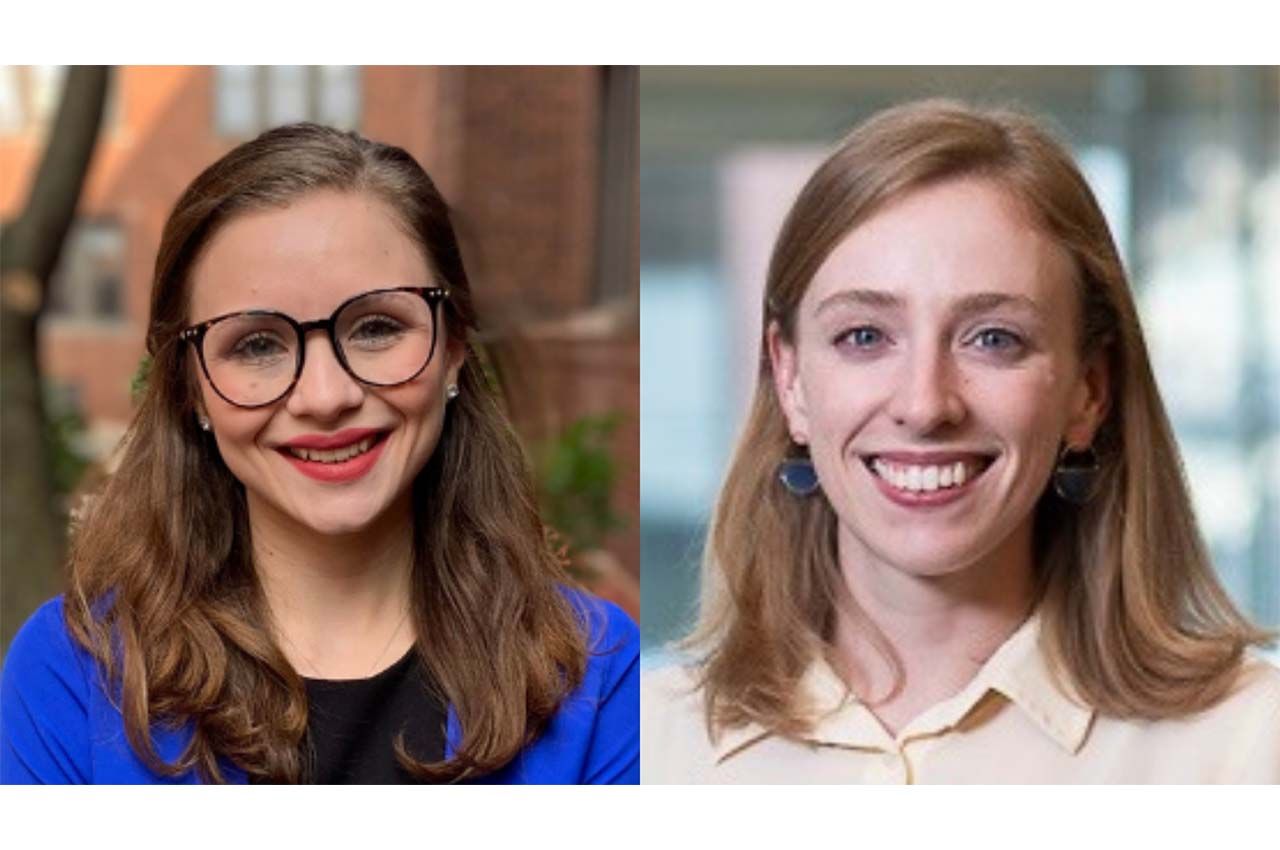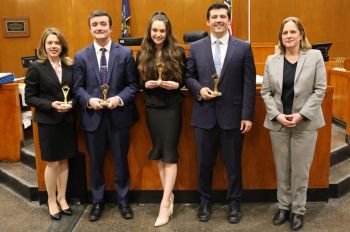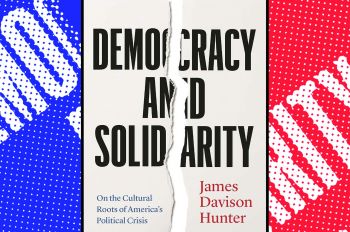Chicago-Kent Moot Court Team Wins National Title

In one of the most stellar performances of the 2021 moot court season to date, a Chicago-Kent College of Law team pulled off an undefeated streak of wins to take the national William E. McGee Civil Rights Moot Court Competition title.
Teammates Mia Rivecco and Hannah Bucher, both second-year law students, beat out 17 other teams in four successful bouts to earn the title, with judges praising their command of the law, ability to stick to their guns when pressed, and nimble counters of opposing teams’ arguments.
“We had a lot of long practices; we’ve been working on this problem since before Christmas. It was definitely daunting in the beginning,” says Rivecco. “But once we got going I started looking forward to practice, thinking we could do well and make Chicago-Kent proud.”
“This whole weekend was a reflection of the work we put in this year, but I think it speaks so highly for Chicago-Kent’s legal writing and research program,” adds Bucher. “As much as it is you standing there giving the argument, you’re there because of an extraordinary team effort that’s very much apparent and pervades Chicago-Kent moot court.”
Both were quick to credit their third-year student coaches, Bora Ndregjoni and Sakshi Jain, who spent many hours helping the team prepare.
The March 5-6 competition’s issue centered on a fictional circuit court case filed by a man who was arrested and held in jail for five days over a holiday weekend before his first day in court.
Accused of stealing less than $20 dollars in bread, orange juice, and cash from a bakery, the man was unable to post bail. Teams had to argue on two fronts, regarding whether there were due process or equal protection violations in the state statute that outlined how long someone could be held before a hearing.
In three of the four bouts—including both the semifinal and final matches—Rivecco and Bucher had to defend the state’s position.
“It’s kind of fun to argue for the state; you have to take the law as it exists. Within the framework of the law as it is, here’s the best argument you can make,” says Bucher. “You have to confine yourself; you can’t come across as emotional. It’s a shift in mindset. You come across as very reasonable, ‘Your honor, this is just what the law is.’”
Rivecco, who defended the due process issue, argued that the state statute was rationally related to legitimate state interests pertaining to public safety and flight risks. She argued that even in the fictional case, such lengthy stays were quite rare under the state statute, which didn’t merit strict scrutiny by the court.
“I argued that two business days is reasonable and rational in order for the state to serve its interests. And there was nothing in the state statute saying they had to be kept,” Rivecco says.
Bucher, when defending the state, had to counter arguments that the statute was unfair to indigent arrestees as opposed to wealthy ones.
She argued that it was not an absolute deprivation because individuals still receive pre-trial liberty, just on a different timeline. Also, she told the judges there is no fundamental right under equal protection for immediate pre-trial release.
“We were able to stand our ground in an effective way, even when the judge was giving us a lot of pushback. We knew we had a strong enough argument to stand on the terms of the law,” Bucher says.
“One thing we did get a lot, was that we had a good grip of the case law. The judges try to trip you up,” Rivecco agrees. “It can be so easy for the judges to yank you around, but Hannah and I both had a very organized, clear structure of where we were going with our argument.”
During practice, the team focused on staying flexible and nimble when making arguments—training themselves to listen to the arguments of the other team and respond to them, rather than rigidly sticking with their practiced pitches.
“If you notice that a judge is really zeroing in on an [opposing team’s] argument, it can be very effective to bring it up when it’s your turn and answer it in a very compelling way,” Bucher says.
The team won its two preliminary bouts against the Howard University School of Law and the University of Oklahoma College of Law. They went on to beat the University of Minnesota Law School in both the semifinal and final.
"Mia and Hannah worked incredibly hard as they prepared for this competition, and it was fantastic to see their talent and all that hard work pay off. I'm so proud of them," says Chicago-Kent legal writing professor Cherish Keller, who oversees the Moot Court Honors Society.
Rivecco arrived at Chicago-Kent immediately after receiving her bachelor’s degree in English from Bradley University in Peoria, Illinois. She has interned with the Law Office of Jill M. Webb in Chicago.
Bucher received a philosophy degree in 2013 from Denison University in Granville, Ohio, and then worked as a paralegal in firms focusing on energy and utility law. Last summer, she worked as a judicial extern with the Illinois Appellate Court.



